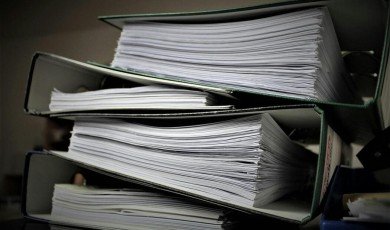Trump's Legal Saga vs. Clinton's Scandals: A Comparative Analysis in the Landscape of U.S. Politics and Trade Policy
By Political Insight Weekly | Published on DATE
Introduction: Two Political Titans, Endless Controversies
In the modern era of American politics, few figures have captured the public’s attention and polarized the electorate as much as Donald J. Trump and Hillary Clinton. Both legendary and contentious, their respective scandals and legal battles have shaped not only media headlines but also the landscape of political accountability, international trade policies, and popular opinion.
Trump’s legal saga, including multiple indictments and civil suits, and Clinton’s never-distant controversies—from the Whitewater real estate affair to the private email server—offer contrasting yet deeply informative case studies. This post delves into these scandals, drawing connections to their impacts on policy stances, especially trade tariffs, and reflecting on how scandals influence governance, public trust, and America’s international posture.
Trump’s Legal Saga: The New Benchmark in Political Litigation
Multiple Fronts, Multiple Charges
Since leaving office in January 2021, Donald Trump has faced unprecedented legal scrutiny for a former U.S. president. The most prominent legal challenges include:
- Manhattan District Attorney Case: Charges related to alleged hush money payments during the 2016 presidential campaign.
- Classified Documents Case: Federal indictments for the alleged mishandling of classified information post-presidency, following the infamous Mar-a-Lago raid.
- Georgia Election Interference Case: Accusations of attempting to overturn the 2020 election results in the state of Georgia, with charges of racketeering and conspiracy.
- January 6th Proceedings: Investigations and civil lawsuits regarding Trump’s actions and rhetoric before and during the January 6th Capitol riot.
The breadth and depth of these cases highlight a fundamental change in legal standards applied to politicians, setting a precedent for prosecuting previously “off-limits” executive actions.
Scandal as Spectacle: Media and Political Fallout
Trump’s flamboyant response to legal peril—turning courthouse steps into campaign venues and leveraging social media—reflects his talent for reframing scandals as evidence of a “witch hunt.” His base, galvanized by a narrative of political persecution, remains largely unshaken, pointing to a new paradigm where legal jeopardy can bolster, not hinder, political aspiration.
Trade Tariffs and Legal Distractions
Despite his controversies, Trump’s policies, particularly on trade tariffs, had profound effects. As president, he escalated a trade war with China, imposing tariffs on steel, aluminum, and hundreds of billions in Chinese imports. These moves aimed to protect American industries but also triggered retaliatory measures, impacting global supply chains and agricultural exports.
Critics argue that Trump’s legal distractions undermined the administration’s focus on stable trade negotiation, with ad hoc and unpredictable tariff announcements fueling uncertainty for U.S. businesses. Supporters counter that his willingness to upend international norms was a necessary jolt to rebalance unfair trade relationships.
Clinton’s Scandals: Legacy of Controversy in the Internet Age
From Whitewater to Emails: Decades of Investigation
Hillary Clinton’s political journey has been dogged by a succession of scandals, some legislative, some personal, and many amplified by the exponential growth of the internet news cycle. Notable controversies include:
- Whitewater Real Estate Affair: A late-1990s investigation into property investments by the Clintons, involving allegations of fraud and corruption, ultimately resulting in no charges against either.
- Benghazi Attack and Aftermath: Scrutiny over Clinton’s actions as Secretary of State during the 2012 Benghazi terrorist attack, leading to exhaustive Congressional hearings.
- Email Server Controversy: The revelation that Clinton used a private email server for official State Department business, fueling FBI investigations and a chorus of “lock her up” demands during the 2016 election.
While exhaustive probes found no criminal liability in these cases, the impression of impropriety clung to Clinton, significantly undermining public trust and handicapping her 2016 presidential bid.
Media, Partisanship, and Gendered Scrutiny
Clinton’s scandals have been dissected under a particularly harsh and, at times, gendered lens. Critics note that despite multiple investigations yielding little evidence of criminal intent, negative media coverage and persistent conspiracy theories saturated public discourse. This environment created a feedback loop between scandal reporting and public perception, making the allegations more damaging than the actual legal findings.
Clinton’s Trade Record Amid Controversy
As Secretary of State and First Lady, Clinton often supported trade liberalization, backing deals like NAFTA (North American Free Trade Agreement) and the Trans-Pacific Partnership (TPP), at least in early stages. However, facing backlash among working-class voters and progressive Democrats, she pivoted to a more protectionist stance during the 2016 presidential campaign.
Scandals, especially the email controversy, overshadowed her nuanced trade positions in the public eye, reducing complex economic debates to mere sound bites and limiting her political maneuverability on trade issues.
Comparative Impact: How Scandals Shape Policy and Public Trust
Legal Trouble vs. Political Accountability
While Trump’s legal saga is largely judicial—with multiple ongoing court cases—Clinton’s scandals often occupied the gray zone of political accountability, driven by Congressional probes and public pressure more than criminal prosecution. This distinction affects the resilience and narrative of each figure: Trump frames himself as a legal martyr, while Clinton often portrays herself as the target of political vendettas.
Influence on Trade and Tariff Policy
Both Trump and Clinton faced challenges connecting scandal response to coherent trade policy. Trump’s adversarial trade posture was intertwined with his “America First” mantra, with legal troubles almost amplifying his iconoclastic stance. Clinton, caught between her support for trade deals and anti-globalization sentiment among voters, found her policy positions muddied by scandal coverage.
For U.S. industry and international partners, these dynamics raise questions about continuity and reliability. Tariff negotiations and enforcement require stability and clear leadership—both of which can be compromised when political figures are perpetually embroiled in legal and ethical battles.
Public Trust and Electoral Consequences
Scandals have demonstrably eroded trust in both Trump and Clinton, with Pew Research Center data suggesting a steep decline in perceived political integrity for both. Yet, in an era of hyper-partisanship, scandals can paradoxically energize bases, harden partisan divides, and diminish the power of scandal itself as a political weapon.
Conclusion: The Scandal Era’s Legacy for U.S. Politics and Trade
Trump’s legal saga and Clinton’s never-ending controversies represent more than just the failings or victimization of two famous politicians. They are symptomatic of a new political era, one where scandal and litigation become strategic tools, accountability is hotly debated, and actual policy—such as trade tariffs and global economic strategy—is shaped as much by optics as by substance.
For businesses, voters, and international observers, the lesson is clear: understanding the intersection of legal drama, scandal, and policy is essential. Trade wars and tariff policies do not develop in a vacuum; they are affected by a leader’s ability to maintain legitimacy, focus, and consistent messaging—even amid controversy.
As the U.S. hurtles toward future political cycles, the legacies of Trump and Clinton ensure that scandal will remain a central, if not dominant, feature of our national discourse. The true test will be whether American governance can withstand the perpetual storm and steer toward effective, trustworthy, and transparent policymaking.









